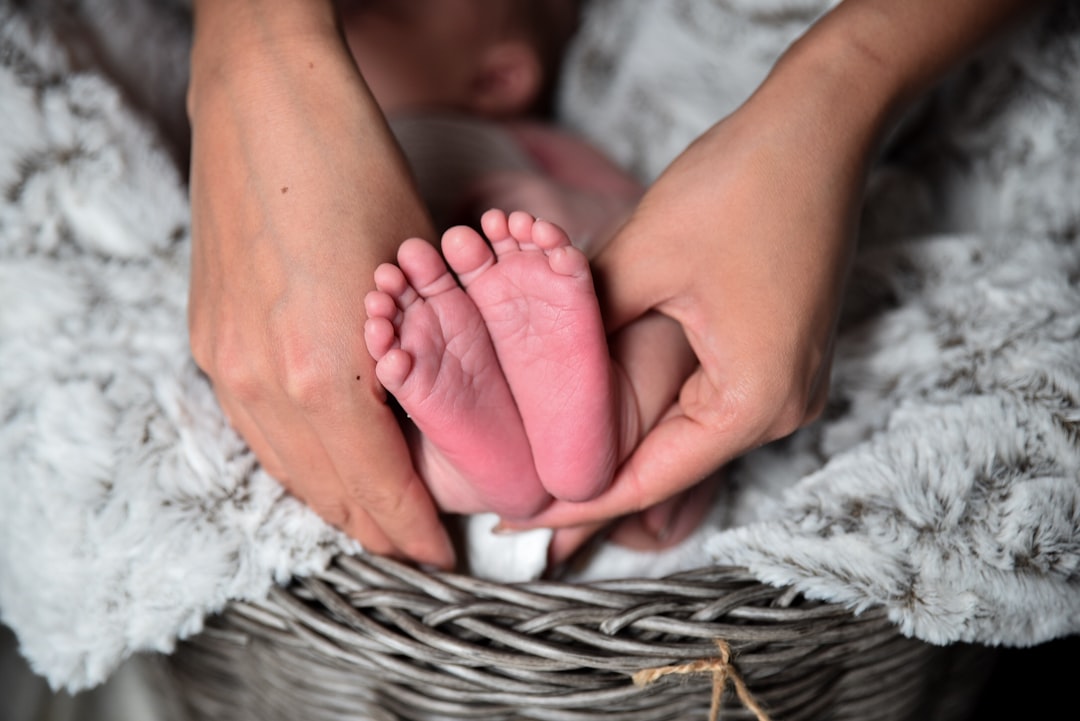Are we men ready for fatherhood to change who we are?
The difficulty I sometimes find in connecting with being a father. I try to understand what boredom is telling me. I try to make sure that my feelings are not always worth less than my reasoning.
There is a moment on Saturday or Sunday, after having spent ten hours with my kids, that I get a little exasperated, I lose my patience. I find it hard to identify the emotion, I definitely feel some guilt too. I know that time alone with them improves our relationship... but I get bored! Yes, I feel bored. I want some time in the car for them to talk to each other while I can talk about the stupid things we adults talk about.
This is what a friend tells me. He tends to spend several weekends alone with his two children and prefers to make plans with other people instead of being alone with them. As I listened to him, I immediately remembered my long days with Lorenzo, my son, now three-and-a-half years old. I thought especially of the first two-and-a-half years of his life, when he hardly went to daycare (thanks, COVID!) and we’d spend the whole day together.
It also reminded me of a question I often ask myself in moments of boredom — which I had virtually ignored in my life before becoming a father: how willing are we men to let fatherhood change our lives?
It is clear that the routines and habits of a couple change completely when they have children, although we also know that this rarely happens equally.
With the arrival of a child, men continue to work as much or more than before, while women face a different reality: either they double their working day — maintaining a paid job but adding household and care tasks — or they are forced to abandon all or part of their paid work to devote themselves to caregiving.
In other words, "the arrival of a child tends to strengthen the role of economic provider in men (...), while women reinforce their role as caregivers," says an extensive Equimundo report on Latin America and the Caribbean, highlighting a trend that repeats itself in most Western countries.
As I’ve explained before, this was not my case, as my partner and I experienced a sort of reversal of gender roles compared to what is socially and structurally expected: Irene dedicated herself to paid work and I was left in charge of the household and Lorenzo.
This is how I have found myself more than once — thousands of times! — with a situation similar to my friend's: trying to enjoy my time with Lorenzo but, at the same time, wanting to be somewhere else or doing something else.

Where do I want to go, what do I want to do, is there something more important than being with him? Sometimes I ask myself these questions when I feel the urge to leave, to stop hearing for the thousandth time "papá, papá!" followed by a demand.
In the end, maybe the difficulty I sometimes find in connecting with being a father is the inability to surrender myself to a state of passivity in which I do nothing I once considered productive — in economic terms — and to what I thought it meant to be a man: to do, produce, do, produce, and to be visible and recognized.
A thousand times "papá!"
Although I find it hard to admit it — a little out of shame, a little out of guilt — I'm going to say it: I adore him like no one else in the world, but there are times when Lorenzo exhausts me (and I can't take him anymore!). "Dad, dad, look," he repeats. The first time I feel tenderness and the fifth time too; but then he repeats it 400, 800, 1,000 times, and each time he shouts louder and louder, even though he has nothing to show me (and it becomes obvious to me that he just wants my attention).
Other times it is his endless demand to "play" that does not amuse me, but exhausts me. It is partly because I want to do something else, and partly because I am incapable of engaging with children’s play, especially when it becomes irrational. I find it impossible to play with him because playing consists not in putting together the puzzle, but in tossing around his toys…
It also happens that there are times when I don't know how to relate to his demand for attention. While I want to answer an email or a message, he keeps reminding me that we are in the same place and that, from his perspective, I am there to be with him, not to pay attention to anything else (and even less to a phone that he has no access to for now: "Phone away, chau phone", he tells me).
That's when I am pushed to think about what lies behind my boredom. When I look back in my 37 years of life before Lorenzo was born, I was always doing more and more of what I wanted to do, focusing on myself, on my desires and interests. Those were years of career growth and personal expansion in which my only routine was a lack thereof. There was not a fixed timetable nor many conditioning factors in my (fortunate) daily life. As I said, boredom was something that practically did not exist in my life, where I could easily distract myself whenever I needed to.
Having to take care of someone else — an energetic child! — abruptly altered that way of life. Despite the initial resistance, based on the naïve idea that everything could stay the same, with Lorenzo’s arrival came other responsibilities and priorities. There was a child to feed, change, put to sleep, care for and, above all, interact with (and play with) all day long. Which brings me back to the issue of boredom.

Children as artists of the present
The Argentine-Spanish writer Andrés Neuman, who was deeply shaken by his experience of becoming a father at 47, said in an interview: "Children are the artists of the present and that is the culture I am trying to learn and apply. Having a baby is a way of systematically exercising myself in the here-and-now and this is the only antidote that can help us against the permanent anguish in which we have installed ourselves."
I agree with what Neuman says but I am careful not to tie myself too much to unattainable parenting ideals that at the end of the day will burden me with frustration and stress. For that, I try to connect also to my desire: I don't want to forget myself, or annul myself, by paying too much attention to my son.
Sometimes I realize that I have to devote more time to myself, even if that exercise makes me face another void: What do I do now? What do I want to do?
I also see that in the past I could cover up some existential anguish with unsatisfying jobs or with a hectic social life. In the same way, now I could go out of my way for my son and that could be the perfect excuse for all my frustrations or procrastination.
And therein lies the paradox: sometimes I despair and sometimes the opposite. As Neuman says: "One arrives at parenthood with too many preconceived ideas. We are continually being told what we should do and feel".
Let me repeat that last word: feel. Here we enter a territory in which we men are particularly lost. Do we give ourselves permission to truly feel or do we let ourselves be carried away by that which Neuman says is what we’re told we should do and feel? I think that feeling tends to scare us, and we run away. But that generates several problems.
One is that in order to truly escape you need to know what you are escaping from. Otherwise, what we are escaping from remains entrenched inside of us, and it can come back, over and over again, in one way or another. Silencing these uncertainties and doubts makes us become absent, sometimes even insensitive.
"The work of care, affection and accompanying can also go through men's bodies. I feel that all of this is a great opportunity for men to reflect and to connect with the child. So that when the birth occurs it is not a beginning, but a continuation of a bond that you have already been generating little by little," says Neuman in another interview, with Spain’s El País, in which he talks about Umbilical, his latest book (for now only in Spanish) dedicated to his experience as a father.

Accepting the paradox, letting yourself change
Reflecting on the boredom or impatience that I experience when I try to spend an afternoon at home playing with Lorenzo, I also look for other possible explanations, and I realize that a lot of unease comes from the idea of not making money. There is a disconnect between what I feel and what I should feel, between what I think and what I am supposed to think.
Then I think about how we men tend to present ourselves and behave in society, how we burst into public settings, what things we value most. Ultimately, I am forced to face the weight of the mandates of masculinity (heterosexual man as a provider, as self-sufficient, rational, physically strong, occupying the place of truth, chivalry and risk-taking).
The question I now ask myself is: how do I deal with this situation every time Lorenzo demands more and more from me? I try not to do it with resignation. Without ceasing to ask myself why it is difficult for me to move away from specific places of visibility (my professional career) or recognition (earning money), I accept the paradox of the situation: I am doing something super important — taking care of Lorenzo — but I am not able to value it and enjoy it as much as I would like to.
This contradiction may get bad press, but for me it is unavoidable. I try to understand what this boredom is telling me. I try to make sure that my feelings are not always worth less than my reasoning. Holding that tension, sometimes, opens the possibility for me to learn to play and care more. It allows me to move away from the center and understand that there are desires and needs of others that are as or more important than mine. It pushes me to be in the present, and to let myself begin to be changed by the experience of fatherhood. 🏁
✍🏻
As always, I look forward to your comments and emails, which so far have been a highlight of my work days. But not worries, I know there are people that read (and enjoy!) these newsletters but do not make comments or share their own views… That’s perfectly fine too! 😉
Love,
Nacho
*Big thanks to Irene Caselli who translated this newsletter and to Worldcrunch for the editing.


